What digital music did next: the future of audio revealed
From pirates to buy outs
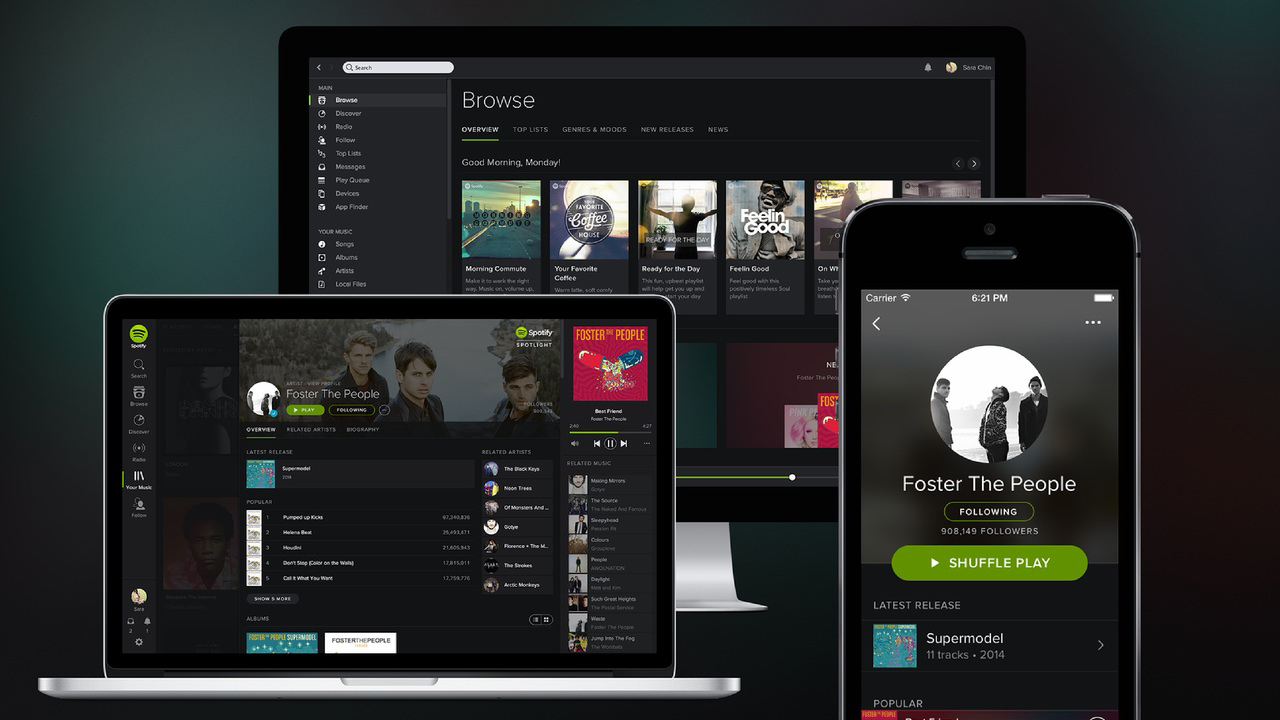
Sign up for breaking news, reviews, opinion, top tech deals, and more.
You are now subscribed
Your newsletter sign-up was successful
Since the appearance of the internet and the MP3 in 1993, the music industry has lost over half of its value, but it's also been one of the most innovative areas for the new digital economy. We've had illegal file-sharing and court cases, arguments over compression rates and digital rights management, the emergence of iTunes eight years ago and, most recently, the Spotify phenomenon.
Other industries watched music struggle to combat then finally give in to, the internet. With streaming services now popping-up from all the major gate-keepers of the internet, music is once again at the forefront of the internet's development.
Music: the 'canary in the gold-mine'
"The cultural and technological characteristics of music meant that it got hit by the internet first, and as a result the entire industry responded, reacted, adapted, fought back, resisted, flexed, and is now finally at the point where it's growing again," says Jeremy Silver, ex-EMI and Virgin Records music industry executive, Advisor to the UK Technology Strategy Board and author of Digital Medieval: The First Twenty Years of Music on the Web … and the Next Twenty. "Music is global – people like the same music all over the world – which fitted the internet. File-sizes of music once MP3s appeared meant that you could transport it across the internet in a way that you couldn't with video," he says, calling the music industry the 'canary in gold-mine' of the internet.
It's not been an easy transition; the International Federation of Phonographic Producers (IFPI) reports that the value of recorded music has dropped from US$35 billion in 1999 to US$16 billion today.
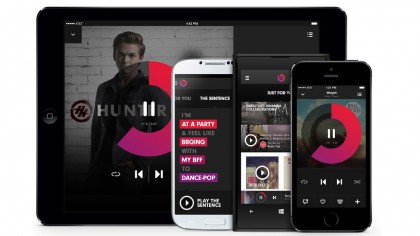
Is the future all about streaming?
"At the moment there's a huge shift in consumer behaviour going on from individual track or playlist downloads to streaming services," says Silver, citing the acquisition of Beats by Apple as the latest salvo. "It shows that consumers are increasingly less interested in owning music and much more interested in accessing music wherever and whenever they want."
With its 20 million songs, Spotify is the obvious trend-setter, but there's also Deezer (claiming 30 million songs), Amazon Prime Music (which offers Prime customers only a million songs) and Beats Music (20 million). Expect the latter to power a re-branded iTunes, while Google's Play Music All Access (18 million songs) could be bolstered through the acquisition of mood-based music streaming service Songza.
Music is part of an online 'arms race'
So will the likes of Apple, Google, Amazon and Microsoft gobble-up start-ups until they all offer the same music services? "There's every indication of that," says Silver. "There's an arms race going on and each of those major players wants to offer a similar rage of music services, each of them with slightly different features."
Sign up for breaking news, reviews, opinion, top tech deals, and more.
The future of music could, therefore, be tied-up to the futures of these big internet brands, which Silver describes as being on the verge of transitioning – with the help of music – from simple 'walled gardens' to 'digital city states' that lock all of us in to just one of them. Silver calls it 'digital medieval'.
What is a 'digital medieval' landscape?
"The medieval times were characterised by a great deal of change, anarchy and an abandonment of the ways of the past, a lack of clarity about the future, and a lot of innovation," says Silver. "That's what it's like today. We're in landscape that's dominated by a few major players – Google, Apple, Facebook and Amazon – which are almost digital city states that want to convince us that the more we inhabit their world entirely, the easier a place the world is to live."
Silver thinks that this distinctly medieval situation – which started with music – is now the default business model for all of these companies for entertainment, and, soon, for health and home security, too. "When our personal medical records belong to companies like these we'll have have entered a different era." Are we talking about the internet of things again? "It's the Internet of People actually," says Silver. "It's the quantified self."
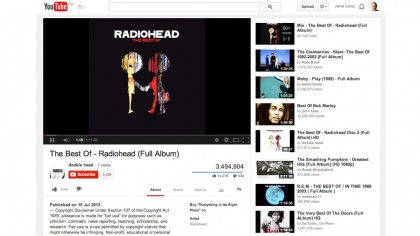
What about YouTube?
YouTube is hugely important in music, with OFCOM reporting last year that 54% of music fans access music (compared to 33% using iTunes and 23% buying off Amazon). "YouTube has shifted towards playlists," says Silver, who's under no illusion that it's a feature aimed at music. "The place where playlists work best is with audio rather than video."
Can YouTube battle the likes of Spotify? "Spotify is great but it still has gaps," says Silver. "YouTube tends to be a more reliable source if you definitely want to find something, and searching it is easier and better than on Spotify." YouTube knows this, which is why it's busy culling videos from independent record labels as it gets ready to launch its own subscription music service.

Will hi-res music catch-on?
"Hi-res music is not something new, it's just been forgotten in our relentless pursuit of instant access and constant mobility," says Gunnar Larsén, VP, Products at 7digital. "One of the next great challenges for our industry is to bring back great audio quality. The technology is already in place and widely adopted, from compatible devices to ample network capacity."
7digital has paired-up with Onkyo, to bring the e-onkyo music HD digital music store (which has been offering FLAC downloads in Japan since 2005) to Europe and the US. It's part of an attempt to sell more Onkyo AV amplifiers and hi-fis, of course, but 7digital's upgrading of its 27 million song-strong catalogue is far from unique.
However, one problem, says Larsén, is the way that music is recorded. "Music recordings today are often mastered with one or two playback scenarios in mind … the retention of original high dynamic range is often lost, which by virtue means consumers will experience sub-par sound, and something very different from what the artist and the engineer intended."
Does anyone want hi-res music?
"Just because there is currently some confusion around what HD currently means and offers to consumers, the industry must not stop innovating to provide better products, content and user experiences," says Larsén, who believes that higher quality audio is inevitable. "The proof is there for all to see, with Apple buying Beats, and allegedly supporting true HD playback soon, Android already supporting FLAC, the advent of hi-res digital streaming and download services, and not least the increasing demand for high quality headphones and premium priced connected speakers and stereos."
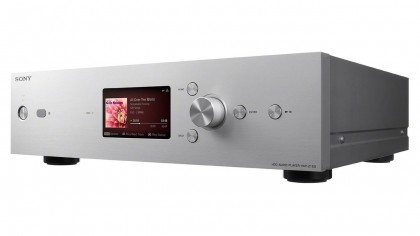
Is Bit Torrent/P2P now a friend of the music industry?
Once derided by the music industry, fie-sharing is increasingly seen as a barometer of popularity. "As an artist what you want to see is large numbers of people pirating your work, because then you know you've made it!" says Silver.
"OFCOM published a report last year that showed that people who downloaded entertainment from Bit Torrent or pirate sources on average spent more money on legitimate entertainment than people who didn't," says Silver. "No-one should condone file-sharing but it's a reality of behaviour and to some extent it's represents a tranche of the community that doesn't have the money to buy music anyway on the one hand, and on the other there's a bunch of people who try stuff on Bit Torrent and go out and buy things for real."
That same OFCOM report highlighted that 301 million music tracks were consumed illegally in the UK in 2012, just over a fifth of the total market.
What does the music industry's experiences teach the others?
"The biggest fundamental is 'go with the flow'," says Silver, who says that attempts at litigation, prosecution, the putting up of obstacles and controlling consumers hasn't been successful. "It's about adapting and understanding what new business models might look like."
However critical it is, innovation often comes from start-ups; Instagram and WhatsApp, both bought by Facebook, are proof of that. Finding a model that works – such as Spotify – is attractive to the big boys. "It's interesting that Apple bought Beats and didn't try to buy Spotify," says Silver.
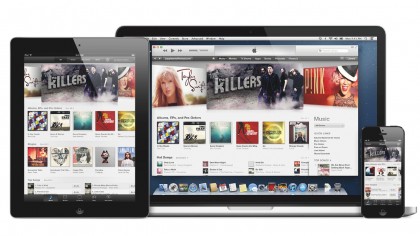
What about the artists?
Amanda Palmer last year delivered a Ted Talk on 'the art of asking', Radiohead developed a 'pay what you want' model, and other artists regularly put their material on BitTorrent as a promotional tool. "Giving away music for free has always been part of the business," says Silver. "When you're starting out you have no fan-base so you do almost all performances and recordings for free," says Silver. "It depends where you are in the music ecosystem, but people are spending more money on live than recorded music at the moment," says Silver.
For most artists, downloads and streaming services don't pay the bills. It depends on individual contracts, but by downloading a track on iTunes for 79p the artists only sees around 7p. So there's really only one way to support your favourite band, and it has nothing to do with digital. "If you want to support acts, go and see them live and buy a CD after the show," says Silver.
That's surely the clearest possible proof that the music industry is still struggling for a post-internet business model.
- Listen to your digital music with these Oppo PM-1 headphones, if you've got the cash to spare...

Jamie is a freelance tech, travel and space journalist based in the UK. He’s been writing regularly for Techradar since it was launched in 2008 and also writes regularly for Forbes, The Telegraph, the South China Morning Post, Sky & Telescope and the Sky At Night magazine as well as other Future titles T3, Digital Camera World, All About Space and Space.com. He also edits two of his own websites, TravGear.com and WhenIsTheNextEclipse.com that reflect his obsession with travel gear and solar eclipse travel. He is the author of A Stargazing Program For Beginners (Springer, 2015),